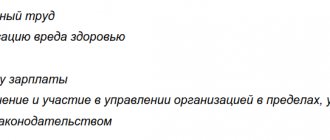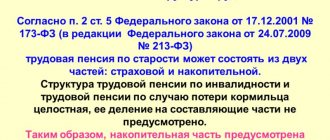Who is the CEO
The head of the company is an elected position and is appointed by the general meeting of employees of the enterprise or by the board of directors.
Considering the job responsibilities of the general director of the LLC, we note that his powers and working conditions are necessarily fixed in the employment contract for a certain period for which the manager is elected. At the end of the contract, the contract is either extended or a new manager is elected to this position, who assumes his position only after the conclusion of the contract. A manager at this level is responsible for all decisions made, which should be aimed at increasing the efficiency of the enterprise. The position is very responsible due to the fact that the responsibilities of the general director combine several strategic tasks:
- management;
- organization;
- planning;
- coordination;
- control.
Basic provisions
An official who holds the highest administrative position in a business organization is called the CEO (president). The board takes place within the framework of the law in force on the territory of the Russian Federation.
Based on the Charter adopted by the founders of the company, the duties of the general director of the LLC are aimed at financial and economic, as well as production and economic activities in the interests of the company.
The Board of Founders or the founder appoints to the post of General Director, as well as dismisses from it, any of the members of the Company or any other suitable individual. The General Director reports directly to the founders of the Company.
Upon entering this position, the manager agrees to an irregular work schedule.
The remaining senior employees (chief accountant, executive director and others) report to the general director.
During the period when the General Director is absent from work, his duties are performed by his deputy, who is an employee of the Company holding a leadership position. The official responsibilities of the deputy general director of the LLC are within the scope of his authority, whereas, upon assuming the position of general director at the time of replacing the head, he assumes full responsibility for the company.
The general director is guided by: the Charter, regulatory documents and the employment contract exclusively in the interests of the limited liability company.
General requirements
Top managers are not taught at any institute, university or other educational institution. But when applying for a job, a higher education in the field of economics, law or in the profile of the organization is usually required. A prerequisite is having management experience with a minimum of two years of experience required. The applicant must:
- know the legislation of the Russian Federation, regulations and legislative acts;
- master a computer and other professional programs;
- understand the specifics of the market;
- be able to draw up business plans and have experience in coordinating projects.
Since the job responsibilities of an enterprise director are complex and responsible, the applicant must have certain personal qualities:
- leadership and self-confidence;
- responsibility and stress resistance;
- organization and communication skills;
- endurance and ability to prioritize;
- Possession of strategic thinking and determination.
A detailed list of what is included in the main responsibilities of the director is set out in the job description, which is developed at the enterprise taking into account the specifics of the field of activity (Article 40 of the Federal Law No. 14 of 02/08/1998 “Sole executive body of the company”, the Constitution of the Russian Federation and the Labor Code of the Russian Federation).
Enter the site
RSS Print
Category : Office work Answers : 7
You can add a topic to your favorites list and subscribe to email notifications.
« First ← Prev.1 Next → Latest (1) »
| hope (guest) | |
| Hello! Please tell me: who signs and approves the job description for the director??? The director is hired by the decision of the founder of PasiBka, | |
| I want to draw the moderator's attention to this message because: Notification is being sent... |
| Lesya [email hidden] Minsk Wrote 5860 messages Write a private message Reputation: 853 Group: Moderators | #2[116025] September 28, 2009, 8:36 am |
hope wrote:
Hello!
The director is hired by the decision of the founder
I want to draw the moderator's attention to this message because:hope wrote:
signs and approves the job description for the director
Notification is being sent...
No one has ever died from hard work. This is true. But why take the risk?| scotch [email protected] Belarus, Minsk Wrote 9027 messages Write a private message Reputation: 664 | #3[116027] September 28, 2009, 8:37 |
Notification is being sent...
Let's hit the Russians with yozyg on the lawlessness of spelling! It’s scary when you realize that every person has their own safe, and you can open it...| Ulya [email hidden] Belarus Wrote 50 messages Write a private message Reputation: | #4[376233] August 15, 2012, 12:13 |
Notification is being sent...
| Ulya [email hidden] Belarus Wrote 50 messages Write a private message Reputation: | #5[376245] August 15, 2012, 12:58 |
Notification is being sent...
| Lynx [email hidden] Belarus, Minsk Wrote 2356 messages Write a private message Reputation: 679 | #6[376246] August 15, 2012, 1:03 pm |
Notification is being sent...
The greatness of a nation and its moral progress can be judged by the way it treats animals. (M. Gandhi) “Now that we have learned to fly through the air like birds, to swim under water like fish, we lack only one thing: to learn to live on earth like people...” (J.B. Shaw) They think about us Only those who are worse than us are bad, and those who are better than us - they simply have no time for us (Omar Khayyam)| Anton12345 [email hidden] Wrote 1 message Write a private message Reputation: | #7[403788] February 13, 2013, 5:10 pm |
Notification is being sent...
| m1958-8 [email hidden] Belarus, Minsk Wrote 10248 messages Write a private message Reputation: 1217 | #8[403804] February 13, 2013, 20:33 |
Notification is being sent...
« First ← Prev.1 Next → Latest (1) »
In order to reply to this topic, you must log in or register.
Functions
The work functions and responsibilities of the director are reduced to the tasks that are posed directly to the employee:
- organizing effective interaction between all divisions and structures of the entrusted enterprise and coordinating them;
- representing the interests of the enterprise, concluding contracts and signing relevant documents;
- planning the activities of the enterprise to increase profits, improve business development, increase production volumes and improve the quality of work;
- correct distribution of job responsibilities between deputies and subordinates, control over the execution of work.
The functional responsibilities of the general director in an LLC are to manage the company with unconditional compliance with all laws of the Russian Federation in the process of working activities.
SOWY.RU
Job responsibilities. Manages, in accordance with current legislation, the production, economic and financial-economic activities of the enterprise, bearing full responsibility for the consequences of decisions made, the safety and effective use of the enterprise’s property, as well as the financial and economic results of its activities. Organizes the work and effective interaction of all structural divisions, workshops and production units, directs their activities towards the development and improvement of production, taking into account social and market priorities, increasing the efficiency of the enterprise, increasing sales volumes and increasing profits, quality and competitiveness of manufactured products, their compliance to international standards in order to conquer the domestic and foreign markets and meet the needs of the population for the relevant types of domestic products. Ensures that the enterprise fulfills all obligations to the federal, regional and local budgets, state extra-budgetary social funds, suppliers, customers and creditors, including bank institutions, as well as economic and labor agreements (contracts) and business plans. Organizes production and economic activities based on the widespread use of the latest equipment and technology, progressive forms of management and labor organization, scientifically based standards of material, financial and labor costs, studying market conditions and best practices (domestic and foreign) in order to fully improve the technical level and quality products (services), economic efficiency of its production, rational use of production reserves and economical use of all types of resources. Takes measures to provide the enterprise with qualified personnel, rational use and development of their professional knowledge and experience, creation of safe and favorable working conditions for life and health, and compliance with environmental protection legislation. Provides the correct combination of economic and administrative methods of management, unity of command and collegiality in discussing and resolving issues, material and moral incentives for increasing production efficiency, application of the principle of material interest and responsibility of each employee for the work assigned to him and the results of the work of the entire team, payment of wages on time . Together with labor collectives and trade union organizations, based on the principles of social partnership, ensures the development, conclusion and implementation of a collective agreement, compliance with labor and production discipline, promotes the development of labor motivation, initiative and activity of workers and employees of the enterprise. Resolves issues related to the financial, economic and production activities of the enterprise, within the limits of the rights granted to it by law, entrusts the management of certain areas of activity to other officials - deputy directors, heads of production units and branches of enterprises, as well as functional and production divisions. Ensures compliance with the rule of law in the activities of the enterprise and the implementation of its economic relations, the use of legal means for financial management and functioning in market conditions, strengthening contractual and financial discipline, regulating social and labor relations, ensuring the investment attractiveness of the enterprise in order to maintain and expand the scale of business activity . Protects the property interests of the enterprise in court, arbitration, government and administrative bodies.
Must know: legislative and regulatory legal acts regulating the production, economic and financial-economic activities of the enterprise, resolutions of federal, regional and local government authorities and management, defining priority directions for the development of the economy and the relevant industry; methodological and regulatory materials of other bodies relating to the activities of the enterprise; profile, specialization and features of the enterprise structure; prospects for technical, economic and social development of the industry and enterprise; production capacity and human resources of the enterprise; production technology of the enterprise's products; tax and environmental legislation; the procedure for drawing up and agreeing on business plans for the production, economic and financial and economic activities of the enterprise; market methods of business and enterprise management; a system of economic indicators that allow an enterprise to determine its position in the market and develop programs for entering new markets; the procedure for concluding and executing economic and financial contracts; market conditions; scientific and technical achievements and best practices in the relevant industry; management of the economy and finances of the enterprise, organization of production and labor; the procedure for developing and concluding sectoral tariff agreements, collective agreements and regulating social and labor relations; labor legislation; rules and regulations of labor protection.
Qualification requirements. Higher professional (technical or engineering-economic) education and work experience in management positions in the relevant industry profile of the enterprise for at least 5 years.
Source - “Qualification reference book for positions of managers, specialists and other employees” (approved by Resolution of the Ministry of Labor of Russia dated August 21, 1998 N 37) (as amended on March 27, 2018)
Rights
In order to perform the duties of a company director efficiently and in a timely manner, a certain set of capabilities is required. The manager has the right to:
- making decisions within their competence;
- bringing employees to disciplinary and financial liability;
- putting forward issues to the general meeting or board of directors;
- dismissal and hiring of employees;
- financial incentives for employees;
- representing the interests of the organization;
- disposal of the enterprise’s property within the framework of the agreement;
- preparation and signing of documents within its competence.
Responsibilities
The job description clearly states what the responsibilities of the general director of the LLC are; it is drawn up on the basis of the Law “On Limited Liability Companies” dated 02/08/1998 No. 14-FZ (Articles 21, 35, 37, 40, 44, 47), Labor Code of the Russian Federation (Chapter 43) and Civil Code of the Russian Federation (Articles 53, 53.1). The areas of activity where a top manager is required are different, so the board of directors has the opportunity to independently develop a job description, taking into account the specifics of the enterprise and the company's charter. If we consider briefly the responsibilities of the director, it is necessary to mention:
- acting in the interests of the company and on its behalf;
- work on managing employees, correct distribution of responsibilities, issuing orders for hiring or dismissal;
- representing the company in government agencies, courts, tax authorities;
- control over compliance with the law in all areas of activity;
- studying, developing and implementing progressive methods of company management and new technologies.
Functions of the general director of LLC
Let's talk in more detail about the financial and economic head of a limited liability company. The decision to appoint him is the prerogative of the sole participant of the LLC or the general meeting of founders.
When changing officials, the participation of the previous general director is not required. The new official will be an applicant to the Federal Tax Service, where this kind of change is registered.
The functions of the general director here overlap with the general ones - for an enterprise, a joint stock company, a large corporation:
- General management of the structure.
- Representative of the company in its interaction with third parties.
- With his visa he enters into force contracts, accounting reports, and other important documentation.
- The right of first signature of the entire series of payment documents.
- In some cases, it has the sole right to sign bank payment papers.
- At his own discretion, he issues powers of attorney to officials who represent the interests of the LLC entrusted to him in various areas.
- Certifies his signature at the bank where the company's current account is opened.
Responsibility
If the duties of the director of the organization are performed in bad faith, the employee bears administrative (according to the Code of the Russian Federation on Administrative Offenses), full material (according to Article 277 of the Labor Code of the Russian Federation), civil and legal (according to Article 44 of Law No. 14-FZ, Article 53.1 of the Civil Code RF), criminal liability (according to the Criminal Code of the Russian Federation) for:
- proper performance or failure to perform their official duties;
- causing harm and damage to the enterprise;
- violation of safety regulations and labor discipline;
- disclosure of commercial and official secrets.
Director's job description
I.
General provisions.
1. The director of the organization belongs to the category of managers.
2. A person with a higher professional education and work experience in management positions of at least 5 years is appointed to the position of director of the organization.
3. The director of the organization is appointed to the position and dismissed from it
(by the founder of the organization, the General Meeting of Founders or another body)
4. The director of the organization must know:
— The Constitution of the Russian Federation;
— laws of the Russian Federation, regulations and decisions of the Government of the Russian Federation relating to the industry of the enterprise and its work;
— resolutions, orders, orders, other governing and regulatory documents of higher and other bodies affecting the issues of conducting production, economic and financial and economic activities of the enterprise;
— prospects for the development of this industry;
— specialization, profile, features of the enterprise structure;
— production technology of the organization’s products and the capabilities of its production facilities;
— methods of managing and managing an enterprise in a market economy;
— features of drawing up and coordination of business plans for the economic and financial-economic activities of the organization;
— features of developing programs for entering new markets;
— the procedure for organizing production and labor, developing and concluding employment contracts and regulating social and labor relations;
— fundamentals of economics, labor organization, production and management;
— legislation on labor and labor protection of the Russian Federation;
— rules and regulations of labor protection, safety precautions, industrial sanitation and fire protection.
5. In his activities, the director of the organization is guided by:
- legislation of the Russian Federation;
— the charter of the organization;
— this job description;
— internal labor regulations of the organization;
— decisions ______________________________________________________________ .
(founder of the organization, General Meeting of Founders or other body)
6. During the absence of the director of the organization (business trip, vacation, illness, etc.), his duties are performed by a deputy (in his absence, a person appointed in the prescribed manner), who acquires the corresponding rights and is responsible for the performance of the duties assigned to him.
II . Job responsibilities.
Director of the organization:
1. Manages, in accordance with current legislation, all types of activities of the organization.
2.Organizes the work and effective interaction of production units, workshops and other structural divisions.
3. Ensures that the organization fulfills tasks in accordance with established quantitative and qualitative indicators, all obligations to suppliers, customers and banks.
4. Organizes the production and economic activities of the organization based on the application of methods of scientifically based planning of material, financial and labor costs, maximum mobilization of production reserves.
5.Takes measures to provide the organization with qualified personnel.
6. Promotes the best use of workers’ knowledge and experience, the creation of safe and favorable conditions for their work, and compliance with labor protection legislation.
7. Resolves all issues within the limits of the rights granted and entrusts the performance of certain production and economic functions to other officials - his deputies, heads of production units, as well as functional and production divisions of the organization.
8.Provides:
— Legality, timeliness and correctness of paperwork,
— Correct calculation and transfer of taxes and fees to the federal, regional and local budgets, insurance contributions to state extra-budgetary social funds, payments to banking institutions, funds for financing capital investments.
— Repayment of the organization’s debts to banks on loans in a timely manner.
9. Exercises control over:
— establishing official salaries for employees of the organization.
— conducting inventories of fixed assets, inventory and cash.
10. Interacts with banks on the placement of available funds on bank deposits (certificates) and the acquisition of highly liquid government securities, monitors the conduct of accounting operations with deposit and loan agreements, securities.
III . Rights.
The director of the organization has the right:
1. Act on behalf of the organization, represent its interests in relations with all structural divisions of the organization, as well as other organizations on economic, financial and other issues.
2. Conclude, amend and terminate employment contracts with employees in the manner and on the terms established by the organization’s Charter, the Labor Code of the Russian Federation, and other federal laws.
3. Request from the structural divisions of the organization and independent specialists the necessary information about the work of the organization.
4. Independently make decisions on rewarding distinguished employees and on bringing violators of production and labor discipline to financial and disciplinary liability.
5. Demand that employees perform their job duties and take care of the property of the employer and other employees, and comply with the internal labor regulations of the organization.
6. ____________________________________________________________.
IV. Responsibility.
The director of the organization is responsible in the following cases:
1. For improper performance or failure to fulfill one’s job duties provided for in this job description, within the limits established by the labor legislation of the Russian Federation.
2. For offenses committed in the course of their activities, within the limits established by the current administrative, criminal and civil legislation of the Russian Federation.
3. For causing material damage to the organization within the limits established by the current labor and civil legislation of the Russian Federation.
4. For using the property and funds of the enterprise in interests contrary to the interests of the founders.
5. _____________________________________________________________.










